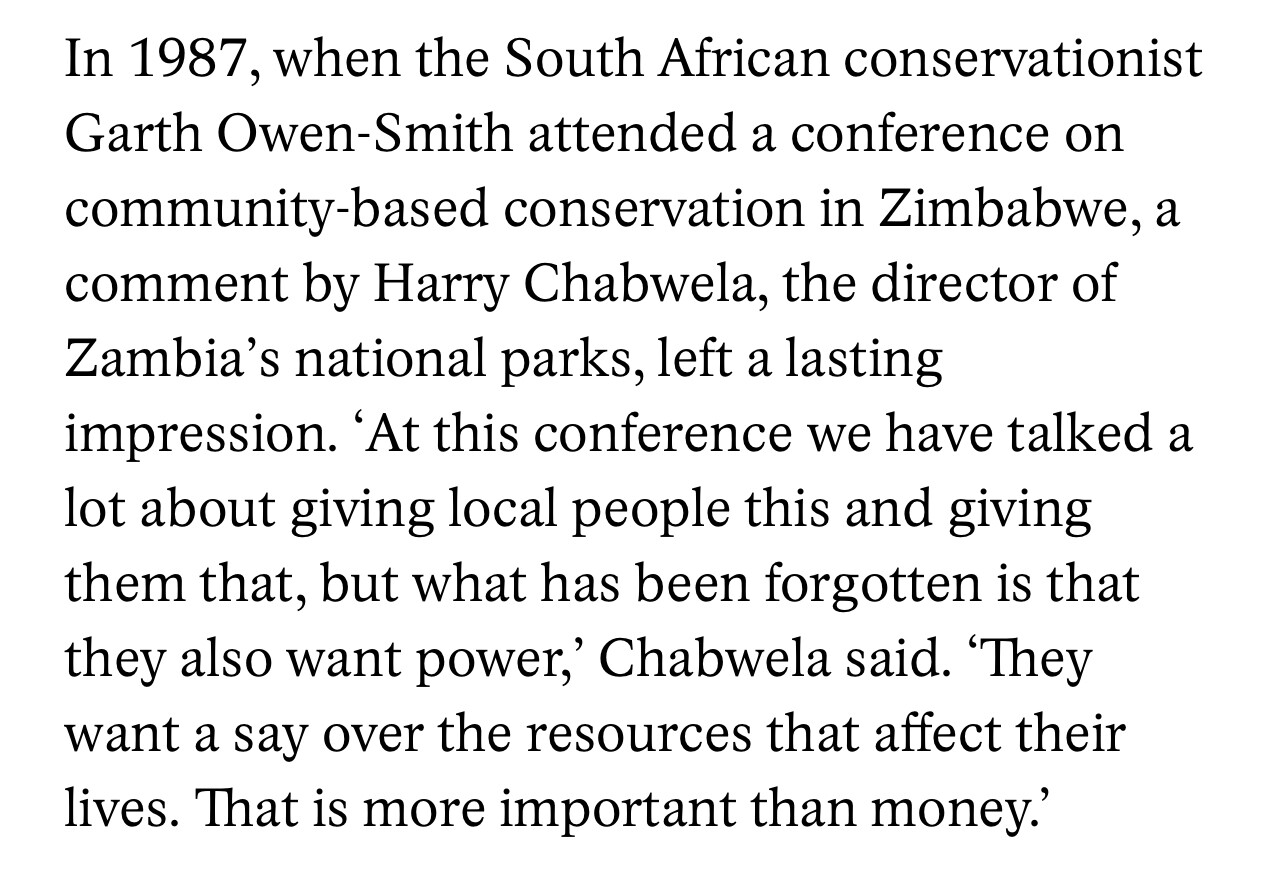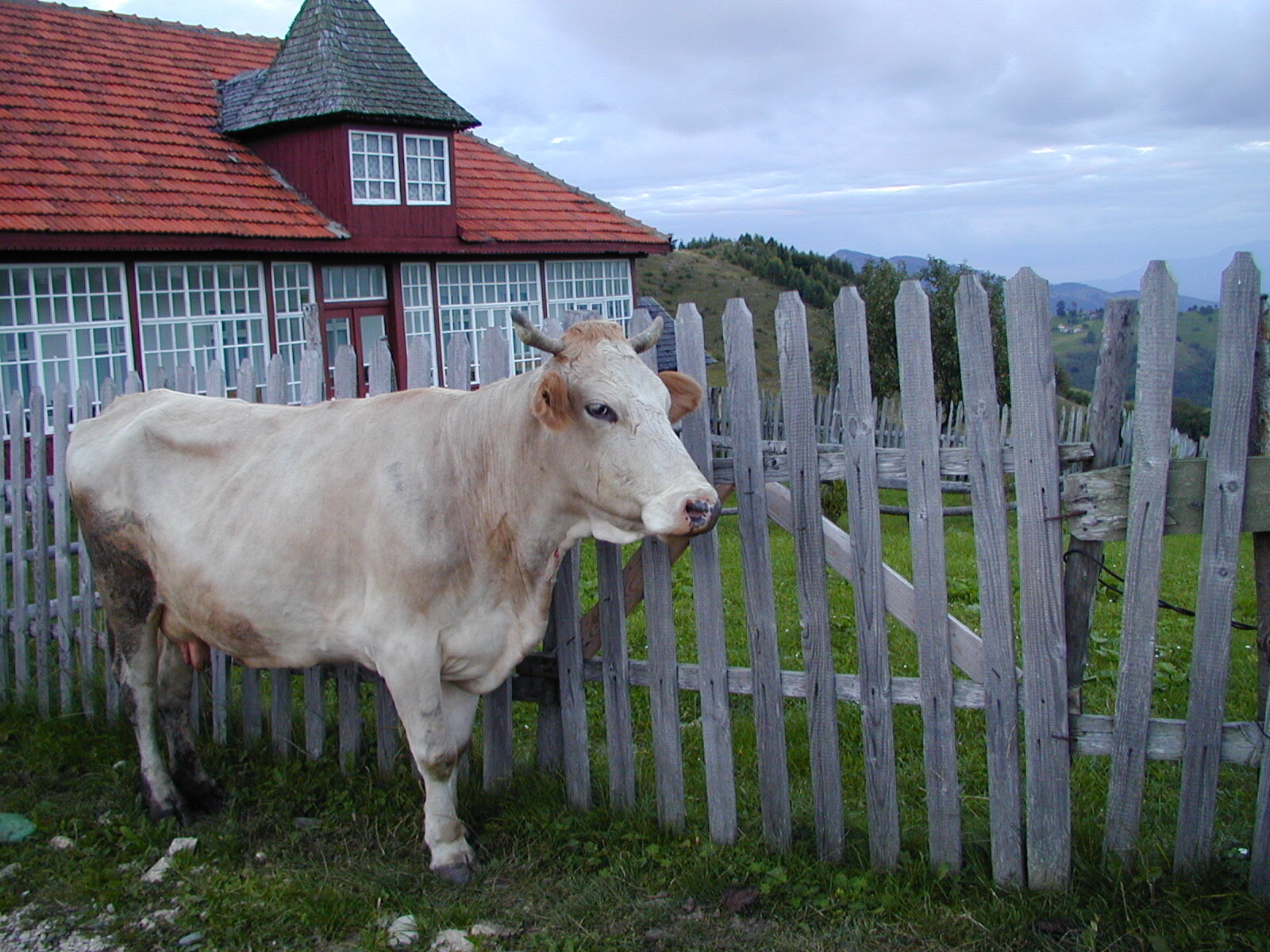they are really fucking with my lost utopia. https://union.place/@BlogWood/109786383465421561
@krille @carlschwan This is pretty great!
we were so young and now we are so old and nothing even happened but time.
from https://aeon.co/essays/the-tragedy-of-the-commons-is-a-false-and-dangerous-myth ht @matthewskelton @otfrom
 In 1987, when the South African conservationist Garth Owen-Smith attended a conference on community-based conservation in Zimbabwe, a comment by Harry Chabwela, the director of Zambia's national parks, left a lasting impression. 'At this conference we have talked a lot about giving local people this and giving them that, but what has been forgotten is that they also want power,' Chabwela said. "They want a say over the resources that affect their lives. That is more important than money.'
In 1987, when the South African conservationist Garth Owen-Smith attended a conference on community-based conservation in Zimbabwe, a comment by Harry Chabwela, the director of Zambia's national parks, left a lasting impression. 'At this conference we have talked a lot about giving local people this and giving them that, but what has been forgotten is that they also want power,' Chabwela said. "They want a say over the resources that affect their lives. That is more important than money.'
@Jonathanglick i wasn’t when i wrote it, but it sure applies. i’m much less interested in crypto than i used to be, because the energy and what was once an appealing idealism has followed the money and become something else.
@Jonathanglick because achieving quality inevitably requires applying local judgment under unpredictable and shifting contexts, which designers of incentive systems cannot adequately model. when incentive systems are strong, people work to optimize the misaligned rewards rather than pursue quality. (this applies recursively to the designers of incentive systems as well.)
high powered incentives yield low quality outcomes.
why don’t grownups skip?
boogers can’t be choosers. it’s the other way around.
chatgpt as the new blockchain or dotcom or -tronics. https://mstdn.social/@lolennui/109757270734937781
@ianbetteridge @pluralistic “the bigger problem is that Google no longer feels complete. I used to be able to weed out the junk by writing more specific queries. Now, such queries—as well as searches for phrases that I know exist on the Web—commonly turn up nothing.” right on.
They say the economy has grown so much since then, but in the early 1990s you could quickly get a human on the phone 24 hours a day from most larger firms. The humans haven’t gotten more expensive, in real terms, especially given the virtualization and offshoring of call centers. It’s just that somebody has gotten so much richer we can’t afford for them to pick up. cf #EmilyStewart https://www.vox.com/23571375/no-call-center-phone-number-frontier-facebook
A little while ago I asked why people with fuck-you money are often still so craven. This piece by @iwelsh contains one answer: they wish to “stay in the game”. https://www.ianwelsh.net/the-red-queens-race-neoliberalism-why-healthcare-is-being-privatized/
There’s a documentary produced by the BBC about India’s Prime Minister Narendra Modi and his alleged complicity in religious violence years ago. The Indian govt is assiduously trying to suppress it. In the US press it’s mostly a gotcha point against Elon Musk (who has complied with Indian govt requests to suppress). Links (that function outside the UK) exist but are not so easy to find. https://t.me/themodiquestionbbcep1 #India #Modi
it’s counterintuitive that a coma is a longer pause than a comma.
some enterprising publisher should offer a series of hardcover kids book editions with brown-paper-bag-paper sleeves.
we used to talk about truthiness, but today's world is beset by falsiness, a pervasive sense among much of the public that things that are likely true are really shams or hoaxes, sheeple.
asserting that a claim is mistaken does not constitute a debunking.
